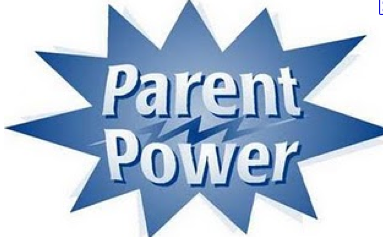Parent Power: Community Organizing as a Parent Engagement Strategy

Edgar Villanueva, Vice President of Programs & Advocacy
Parent engagement can take on many forms within schools. Helping a child with homework, attending after school activities, cooking for a bake sale, and volunteering in the school’s office all fall under our general understanding of typical expectations for parent involvement in schools.Parent engagement, however, is often not defined by parents, which sometimes leads to negative narratives about a “lack of engagement” of parents of color or low-income parents. Parents and communities are critical to catalyzing and sustaining improvement in schools, but one of the biggest challenges can be finding ways to engage and support the powerful involvement of parents.

Edgar Villanueva, Schott Foundation; Leticia Barrera, Logan Square Neighborhood Organization; and Roberto Bustillo, InnerCity Struggle
But in some schools, community organizing has creatively transformed parent engagement into something much deeper: parent power. For over 25 years, the Schott Foundation for Public Education has supported parent organizing with the understanding that parents, especially those from marginalized communities, should be central to improving public education. Schott’s core belief is that a grassroots movement - including parents, students and teachers - is critical to systemic change in the disparities that poor children and children of color face in our nation’s schools.
As an advocate for community organizing in building power for change, Schott’s Vice President of Programs & Advocacy Edgar Villanueva facilitated a workshop on “Strategies for Building Parent Power” at the National Family and Community Engagement Conference from June 20 - 22 in Pittsburgh. This workshop profiledInnerCity Struggle (ICS) in Los Angeles and Logan Square Neighborhood Association (LSNA) in Chicago — both are models that communities and organizers could replicate across the country.
InnerCity Struggle, Los Angeles
InnerCity Struggle Parent Organizer Roberto Bustillo highlighted how his organization in Los Angeles uses community organizing to build parent power as a catalyst for positive change in public education. ICS was founded in 1994 by parents, youth, and residents with the goal of promoting safe, healthy, and non-violent communities in the Eastside of LA. ICS’s campaigns identify parent voice as a crucial component of their strategy to reform discipline policies and practices and to provide equitable opportunities for all youth. With the critical support of parents, ICS and its partners recently won a campaign to ensure that the schools with the highest needs in the L.A. school district are first in line to receive the district-allocated funding.
Watch a Schott-sponsored video about how ICS and others community groups organized to win this campaign here:
Logan Square Neighborhood Association, Chicago
In 1995, the Logan Square Neighborhood Association (LSNA) in Chicago developed a program in conjunction with principals and teachers to engage parents in the low-income, immigrant community of Logan Square on the northwest side of Chicago — beyond just the handful of parents who regularly volunteered at the schools.
Beginning in four schools in 1995, within a few years the program quickly doubled to eight schools in the Logan Square neighborhood. LSNA’s full service community school model, with the Parent Mentor Program as a central component, gained attention and interest throughout the city, with community organizations like the Southwest Organizing Project (SWOP) beginning the Parenting Mentoring Program and then CEO of Chicago Public Schools Arne Duncan spreading the LSNA model to 100 schools throughout the district.
In 2010, LSNA and SWOP began the Parent Engagement Instituteto provide training, coaching, and mentoring to spread the Parent Mentor Program model throughout the state with other community partners. The Parent Engagement Institute continues its work within the state, while also offering community organizations and school districts throughout the country to learn about and implement the model. The program now operates in at least 65 schools throughout Illinois with some financial support from the Illinois State Board of Education.
Since the creation of the program, 1,300 parents (mostly mothers) have graduated from the Parent Mentor Program, and today 130 parents work in eight schools. Through this program, parents are assigned to a classroom where they work one-on-one with small groups of children for two hours a day, Monday through Thursday. Every Friday the parent mentors receive extra training around academic instruction, professional development, community engagement, and leadership skills, and receive a modest stipend after completing 100 hours.
The results are clear: engaging parents, especially through community organizing, improves student outcomes. In Chicago, after having a parent mentor in the classroom, schools experienced the following results:
- Improved Test Scores (increase of 35% of students that meet or exceed on the ISAT in 10 years)
- Increased Long Term Graduation Rates (between 1990 and 2009, the dropout rate for youth age 16-19 decreased 61% in classes with parent mentor in their early grades)
- Strengthened Social Capital (Parent mentors more than doubled the network of teachers and parents with whom they communicate regularly).
Also, the parents themselves have been positively impacted — some are now full-time employees of the school system or have gone to college to become teachers.
Watch this NBC Education Nation video "Putting Parents to work in the Classroom" Video on the success of parent organizing in Chicago:
These amazing parents in Los Angeles and Chicago have been able to utilize community organizing to harness parent power to generate concrete change within public schools - and leadership by two exemplary organizations, ICS and LSNA, has transformed schools and scaled reforms, contributing to a national movement for community-centered education justice.
To learn more about the power of parent engagement through community organizing, check out these resources:
- Join Schott’s Opportunity to Learn Network!
- Video: Parent Power and Vision to Victory featuring victories in New York
- Article: Mobilizing the Eastside of Los Angeles for Educational Justice
- Book: A Cord of Three Strands: A New Approach to Parent Engagement in Schools (Harvard Ed Press, 2011)

